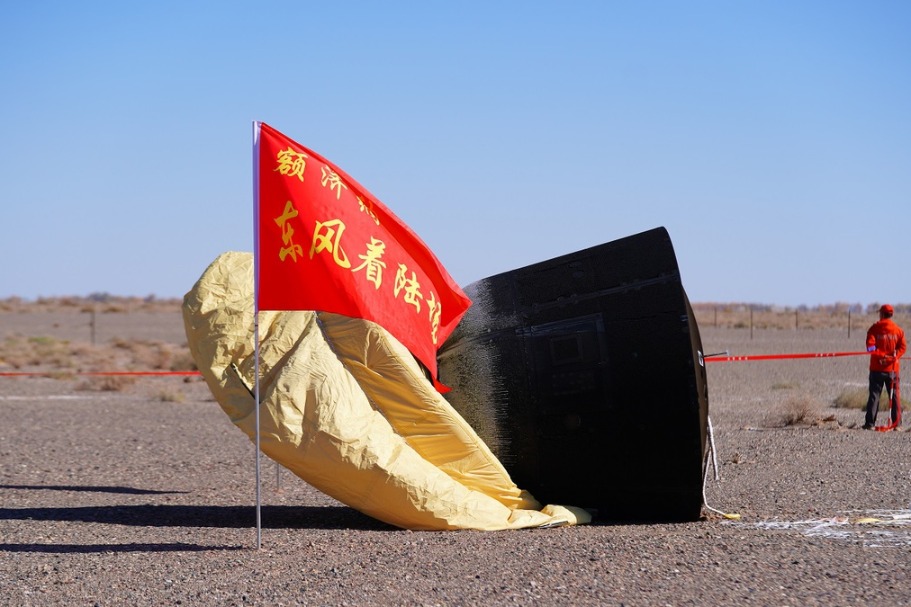Taiwan separatists' agenda doomed to failure


Former Taiwan leader Tsai Ing-wen is on a visit to three European countries, including Czech, from Saturday. Observers, in general, believe her visit to Europe is an attempt to promote the "Taiwan independence" agenda among the international community. But given that the one-China principle is a global consensus, Tsai's strategy of "relying on foreign support" to achieve her goal is doomed to failure.
Since Tsai largely remained out of public view after handing over the island's leadership to Lai Ching-te in May, her sudden decision to visit European countries reflects her political ambitions.
Without the Taiwan leader's platform, Tsai was fading from public memory. Hence, her European trip should be seen as an attempt to not only stay politically relevant but also maintain her influence in Taiwan politics.
She aims to rally her supporters behind her. After Lai assumed office, Tsai's supporters started disbanding, especially due to the political persecution of her confidant Cheng Wen-tsan by the island's current leadership. By returning to public life, Tsai is trying to lift their morale.
Tsai is vying for public attention to undermine the "authority" of Lai — the two have long had a strained relationship. And the European visit is her way of showing she is still a key figure in the ruling Democratic Progressive Party. Lai was reportedly preparing to go on a "global tour", but his plan is yet to be finalized. Perhaps that's why Tsai even met with Lai before leaving for Europe, a move seen as a power play. In response, Lai assigned Huang Chung-yen, a senior official of Taiwan's security department, to "accompany" Tsai — which many say is to keep Tsai under surveillance.
Tsai's aggressive re-entry into politics could renew the infighting within the DPP, especially between the Tsai and Lai factions.
Despite their personal rivalry, however, Tsai and Lai are united in promoting "Taiwan independence". The "Taiwan independence" mindset is blatantly obvious in Lai's "Oct 10 speech".
Tsai's European trip follows the same playbook. Her itinerary, which comprises visits to Central and Eastern European countries, highlights this agenda. In recent years, very few Central and Eastern European countries have adopted an indifferent approach toward Beijing, often using Taiwan as a political tool. For example, in June 2024, Czech Republic opened a new center to strengthen ties with Taiwan authorities. Tsai's choice of first visiting Czech Republic is perhaps aimed at facilitating that process.
Brussels, which is home to the European Union Headquarters, is one of Tsai's destinations. Tsai's visit here is intended to strengthen ties with the EU and its member states, and make Taiwan an "independent" member of the international community.
Although Tsai's visit is still shrouded in secrecy, pro-DPP media in Taiwan have exaggerated the visit as a "breakthrough" in "Taipei-Europe relations", claiming it's the first time a former Taiwan leader has visited Europe. By amplifying her activities, they aim to brainwash the public, falsely suggesting that Taiwan is widely recognized as an "independent political entity".
Despite Tsai's maneuvers, the one-China principle remains a global consensus. Tsai's desperate efforts will prove futile, because she cannot change the global consensus. The fact that 10 of Taiwan's "diplomatic partners" severed ties with the island during Tsai's eight years in office shows that the wind is blowing in the other direction, that is, countries across the world are more willing to partner Beijing in its development march toward the future.
This trend continues even after Lai became the island leader. In regions such as Africa and Latin America, Taiwan's relations with even countries like Eswatini (formerly Swaziland) and Guatemala, the island's "diplomatic partners" for decades, have shown cracks. In Europe, the Vatican has refused to assign an "ambassador" to Taiwan for years, and it's likely Taiwan will soon lose its last ally in Europe.
Under Ma Ying-jeou's leadership, Taiwan attended significant meetings including the World Health Assembly, the decision-making body of the World Health Organization. However, since the DPP's return to power on the island in 2016, Taiwan has been shut out from global events. It is therefore clear that without stable cross-Strait relations, Taiwan's international space will continue to shrink.
Moreover, Taiwan remains excluded from major economic agreements including the Regional Comprehensive Economic Partnership and the Comprehensive and Progressive Agreement for Trans-Pacific Partnership. No matter how many trips Tsai makes to Europe, Taiwan risks further economic isolation in the Asia-Pacific region.
Tsai's European visit is a desperate move to use foreign influence to promote "Taiwan independence", but the undeniable fact is that Taiwan is an inalienable part of China. The DPP and former and current island leaders should abandon the illusion and accept the inevitability of national reunification. And countries across the world should honor their pledge to adhere to the one-China principle, refrain from interfering in the Taiwan question, and avoid sending mixed signals to the separatist forces on the island.
The author is an associate professor at the school of national security, University of International Relations. The views don't necessarily represent those of China Daily.
If you have a specific expertise, or would like to share your thought about our stories, then send us your writings at [email protected], and [email protected].


































